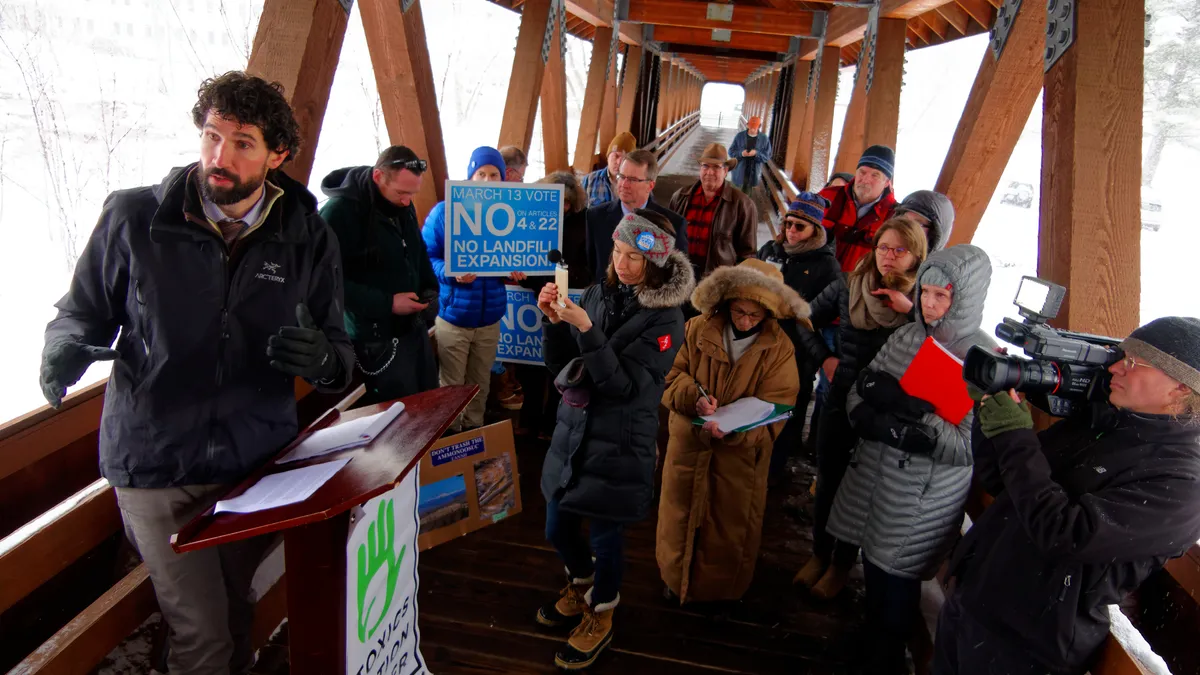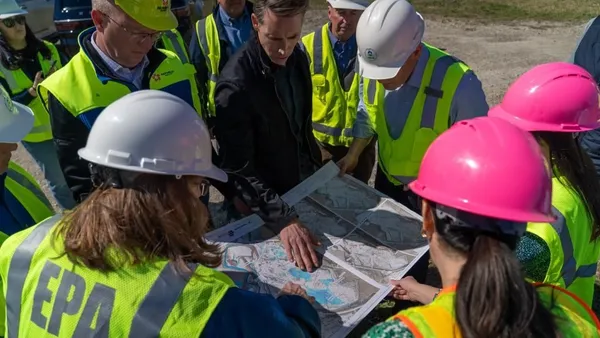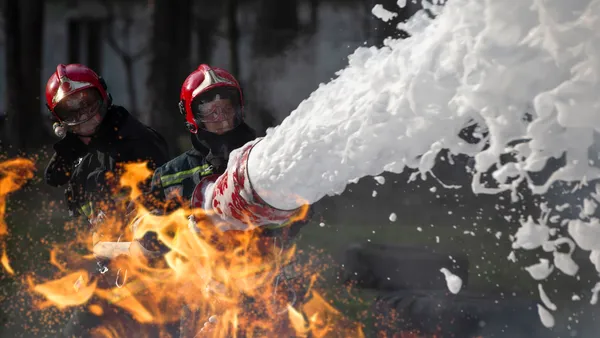UPDATE March 14, 2018: Despite a snowstorm, New Hampshire's town meetings went on as planned and residents of Bethlehem came out to vote for many candidates and articles. Casella's favored items did not prevail.
Article 4, to allow an expansion if the new host community agreement was approved, was voted down by 54%.
Article 22, to approve the host community agreement, was voted down by 55%.
Article 25, to allow a future vote on any agreements made between the town and the company, won with 65%.
Dive Brief:
- Today voters in Bethlehem, NH could decide the future of a landfill owned by Casella Waste Systems subsidiary North Country Environmental Services (NCES) that is slated to reach capacity in 2021. Their ballot includes articles on whether to approve a 100-acre expansion, whether to allow the Board of Selectmen to negotiate a new 20-year host community agreement for $53.7 million, and whether to keep options open for a future vote on any such agreement.
- In what they claim is an unrelated move, the National Environmental Law Center, Toxics Action Center and Conservation Law Foundation filed a notice of intent to sue Casella over an alleged violation of the Clean Water Act on March 8. The groups contend a drainage channel has been sending leachate into the Ammonoosuc River without a permit for at least five years, contaminating groundwater with elevated levels of iron, manganese and 1,4-dioxane.
- Casella Vice President Joe Fusco told the Union Leader this was "pure theater, produced in partnership with extremist lawyers from Massachusetts," and "tiresome, and laughably unimaginative." He also cited ongoing regulation from New Hampshire's Department of Environmental Services as a sign of the site's safety. The agency told New Hampshire Public Radio that it was unaware of the legal notice and couldn't comment.
Dive Insight:
Casella's Bethlehem landfill accepts solid waste from throughout New England, and has taken on an outsize presence in this rural area for decades. Residents believed they had already settled the issue with a 2012 agreement to not pursue further expansion. Yet Casella reintroduced the topic last year, after acquiring a parcel that offered sand for daily cover as well as new land. Voters sided against an expansion in March 2017. Now they're faced with the question once again of whether to grow the site's current 50-acre disposal footprint by another 70 acres.
Community relations have grown increasingly tense in the year since. This has manifested itself through frequent social media debates, plentiful lawn signs and ongoing accusations of corporate influence. Believe in Bethlehem, the group in favor of an expansion for economic benefit, is said to be funded by Casella. On the opposition side, Growing Without Garbage has talked about ways to revitalize the region's tourism economy.
Throughout this time, Casella has taken the usual approach of any company seeking to expand its landfill footprint by emphasizing the financial benefits of free collection and disposal, as well as community payments. At the same time, subsidiary NCES has also filed for an abatement that would reduce its property taxes by more than half.
With such a small electorate, and potentially depressed turnout due to snow, those involved are hesitant to make any predictions on the vote. Though a split vote on the two main articles is not expected. Also at stake are various elected positions, including on the board of selectmen, that could influence future decisions about the site.
If the expansion is voted down, one of the closest disposal sites for Bethlehem residents would be the government-owned Mt. Carberry Landfill in Berlin, NH. A loss would mirror what happened in Southbridge, MA last year after voters turned down Casella's plans for a landfill expansion. The company then decided to close that site, at a multi-million dollar loss.
If the expansion is approved, it will further solidify New Hampshire's place as a disposal hub for New England. The state is now the top export destination for municipal solid waste from Massachusetts, where expansion of any landfills or waste-to-energy facilities is considered a non-starter. Waste Management is currently pursuing its own expansion of the Turnkey Landfill in New Hampshire that could continue this trend.















